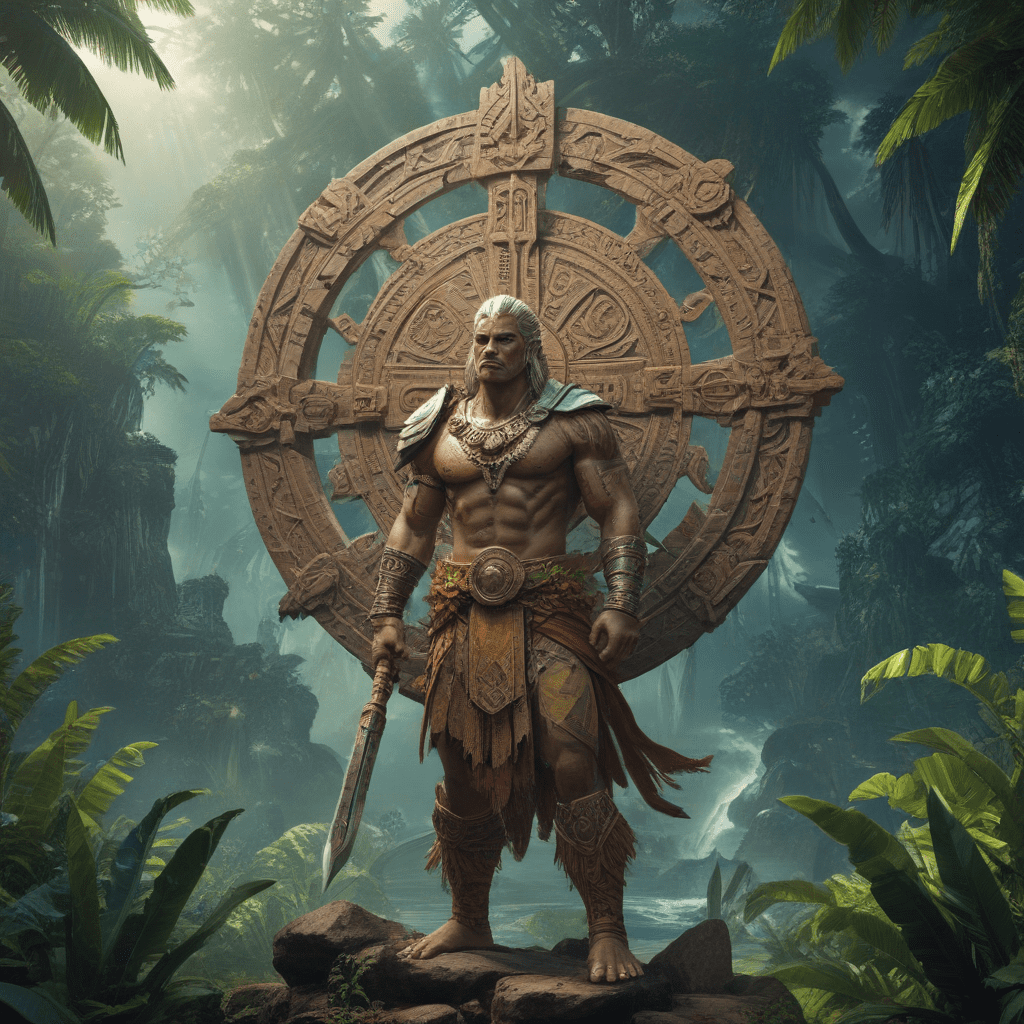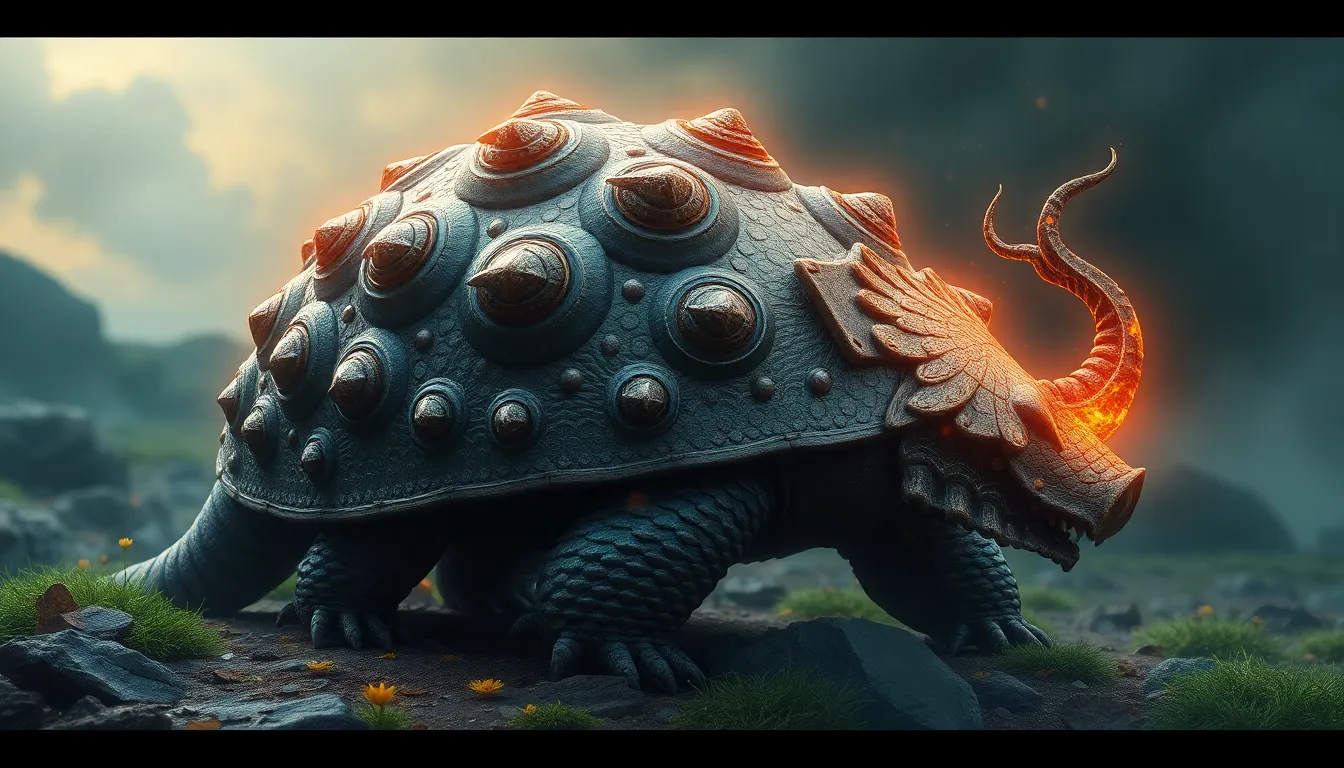The Concept of Destiny in Polynesian Mythology
Polynesian mythology is replete with tales that explore the intricate concept of destiny. Destiny, often referred to as 'ike', plays a pivotal role in shaping the lives and choices of individuals and communities alike. This concept encompasses the belief in a predetermined fate, influenced by divine forces and the actions of ancestors.
II. Creation and the Divine Order
The Polynesian creation narrative revolves around the concept of a divine order established by the gods. The gods, such as Tangaroa, Kane, and Ku, are believed to have created the world and set the parameters of destiny. They are often depicted as powerful beings who determine the fate of individuals and nations, guiding them through life's challenges and bestowing blessings or curses upon them.
III. Birth and Destiny
The moment of birth holds significant importance in Polynesian mythology as it is believed to influence an individual's destiny. Rituals and ceremonies performed at birth, such as the cutting of the umbilical cord, are said to shape the child's future path. Birth order also plays a role, as the first-born child is often regarded as having a special destiny and inheriting the mantle of leadership.
IV. The Warrior’s Path
In Polynesian mythology, the concept of destiny is closely tied to the warrior's path. Warriors, known as toa, are revered for their courage, strength, and loyalty. Their destiny is often intertwined with battles and warfare, as they fight to protect their people and uphold their honor. The concept of mana, a spiritual energy that grants strength and power, plays a crucial role in shaping the destiny of warriors.
V. The Importance of Ancestors
Ancestors hold a revered position in Polynesian mythology, as their actions are believed to influence the destiny of their descendants. Ancestral spirits are often invoked in rituals and ceremonies, as their wisdom and guidance are sought in matters of life and destiny. The concept of whakapapa, or genealogy, is central to Polynesian culture and serves to connect individuals to their ancestors and their collective destiny.
VI. The Concept of Mana
Mana is a multifaceted concept in Polynesian mythology that refers to a spiritual energy or force that can influence destiny. It is believed to be inherent in all living things, but it can be cultivated and enhanced through rituals and practices. Mana can bestow strength, power, and influence upon individuals, shaping their destiny and enabling them to achieve their goals.
VII. Rituals and Ceremonies
Rituals and ceremonies play a vital role in influencing destiny in Polynesian mythology. These rituals are often performed at significant life events, such as birth, marriage, and death. They are believed to connect individuals with the divine and ancestral realms, offering opportunities to seek guidance and blessings. Prayers and offerings are also common elements of these rituals, as they serve as a means of communicating with the gods and ancestors.
VIII. Fate and Free Will
Polynesian mythology acknowledges the balance between predetermined fate and individual choice. While destiny may set a certain path, it is ultimately up to the individual to navigate that path and make choices that shape their destiny. Actions and choices have consequences, and individuals are held accountable for their decisions. The concept of free will allows for personal growth, redemption, and the ability to influence one's destiny.
IX. The Role of Prophecy
Prophets play a significant role in Polynesian mythology, as they are believed to possess the ability to foresee future events and guide individuals towards their destiny. Prophecies can be delivered through dreams, visions, or utterances, and they are often regarded as divine messages. By listening to and interpreting prophecies, individuals can gain insights into their destiny and make informed choices to align with their path.
X. Conclusion
The concept of destiny in Polynesian mythology is a complex and multifaceted belief system that shapes the lives and choices of individuals and communities. Destiny is seen as a combination of divine influence, ancestral guidance, and personal actions. Through rituals, ceremonies, and the guidance of prophets, individuals can seek to understand and fulfill their destiny. The concept of destiny provides a framework for understanding life's challenges and opportunities, encouraging a sense of purpose and meaning in the face of an uncertain future.
FAQ
Q: What is the role of the gods in determining destiny in Polynesian mythology?
A: The gods are believed to have created the world and established the parameters of destiny. They guide individuals through life's challenges and bestow blessings or curses upon them.
Q: How does birth influence destiny?
A: The moment of birth is significant as rituals and ceremonies performed at that time are believed to shape the child's future path. Birth order also plays a role, with the first-born child often regarded as having a special destiny.
Q: What is the significance of mana?
A: Mana is a spiritual energy that grants strength, power, and influence. It can be cultivated and enhanced through rituals and practices, and it plays a crucial role in shaping individual destinies.
Q: How can rituals and ceremonies influence destiny?
A: Rituals and ceremonies connect individuals with the divine and ancestral realms, allowing them to seek guidance and blessings. Prayers and offerings are common elements of these rituals, facilitating communication with the gods and ancestors.
Q: Is destiny predetermined or does free will play a role?
A: Polynesian mythology acknowledges a balance between predetermined fate and individual choice. While destiny may set a certain path, it is ultimately up to the individual to make choices that shape their destiny.



